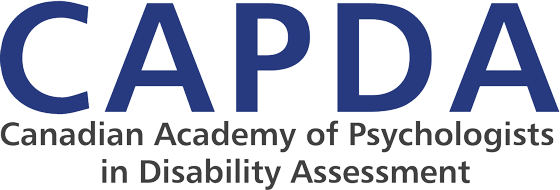2019 Spring Workshop
June 21, 2019, 8:00 AM - 4:00 PM
SCHEDULE
8:00 - 9:00 am Registration and Breakfast
9:00 - 10:15 am Morning Workshop
10:15 - 10:30 am Refreshment Break
10:30 - 12:00 pm Morning Workshop (continued)
12:00 - 1:00 pm Luncheon
1:00 - 3:00 pm Afternoon Workshop
3:00 - 4:00 pm Questions
MORNING WORKSHOP
A Refresher Workshop on Fundamental Statistics for Practicing Psychologists
Presented by Dr. Jonathan Siegel, Psychologist
In this three hour content rich, informative, and entertaining workshop, we will review the fundamentals of statistics for practicing psychologists. It is a refresher course with a focus on practical applications. We will use examples from tests such as the Test of Memory Malingering, DOT Counting Test, Clinical Assessment of Depression, and Minnesota Multiphasic Personality Inventory to illustrate those critical concepts in statistics that are applicable to all psychological testing. My focus is on the concepts, with some good visuals, so that the math is more intuitive.
As a result of this workshop, you will:
- Have a better command and understanding of statistics as it applies to the field of conducting psychological disability assessments.
- Understand the relationship between the binomial distribution and the Test of Memory Malingering.
- Be provided the website for being able to calculate the exact probability for any raw score on the Test of Memory Malingering (and any test using the binomial distribution).
- Have a clear understanding of correlation coefficients (with visual representations) and their relationship to standard deviations and variance (R squared).
- Revisit the concepts of standardization, Z scores, T scores, as well as sensitivity, specificity, likelihood ratios, pre-test odds, post-test odds, and positive predictive values.
- Feel more confident as a result of this workshop to testify at trial regarding the strengths and limitations of the tests that you use.
And yes, given that Jonathan has been in Toastmasters over 18 years, he knows he has a responsibility to make this fun as well!
ABOUT THE PRESENTER

Jonathan Siegel graduated with his bachelors degree in physiological psychology from McGill University in 1978, and with his doctoral degree in counseling psychology from the University of Toronto in 1986. He published an article on the topic of sensitivity and specificity in WP (Without Prejudice), a trade journal for Ontario Insurance Adjustors, in March 2018. His greatest personal achievement (outside of any family accomplishments) is winning first place in a humourous speech contest in Toastmasters in November, 2017, out of 1000 contestants. His knowledge of statistics has not helped him at all in Las Vegas.
AFTERNOON WORKSHOP
CAPDA Casebook Learning Opportunities: An In-Depth Analysis of Psychological Disability Assessments
Panel Presenters: CAPDA Board of Directors
Facilitator: Dr. John VanDeursen, Ph.D., C.Psych. - Co-Chair, CAPDA Standards & Guidelines Committee
This half day workshop takes us past the abstracts of Ethics Codes, Practice Guidelines and Professional Standards and moves to specific in-depth analysis of problems we see in Psychological Disability Assessment as we explore current clinical examples.
When CAPDA was first formed, we had opportunity to meet and talk and learn from each other. Those conversations explored the similarities and differences in how we conducted and conceptualized our assessment practices. The thoughtful rationale behind differing practice patterns was particularly enlightening. Those conversations launched CAPDA’s development of assessment guidelines. Since that time, many authoritative Ethics Codes, Practice Guidelines and Professional Standards have developed that necessarily inform our assessments.
In this workshop, we are going to look at a number of selected disability assessments completed in our community that raise some questions about how they were completed as well as the resulting reporting. This will include analysis of Insurer Examinations, Medical-Legal Assessments and assessments completed by treatment and rehabilitation professionals.
Through the analysis of the selected disability assessments, we will consider such issues as differing professional opinions, sources of important/relevant data, interpretation of data, assessor competencies and, limits to what should/can be opined. This includes what to consider as findings and opinions in a specific case contrast significantly across examiners (and treatment/rehabilitation providers). In particular, we will be challenged as we attempt to define the distinction between what is supported as appropriate versus what is agreed to be inappropriate.
Selected clinical examples include disability assessments of children and youth. As will be discussed, disability assessment of children and youth often include additional complexities and challenges worthy of illustration.
This workshop should be of interest and relevance both to assessors and treatment providers working either with children and youth or with adults.


